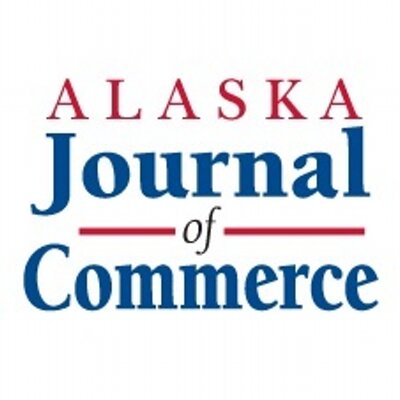
A Superior Court Judge agreed that the group sponsoring a voter initiative to raise oil taxes violated a state law limiting payments to signature gatherers, but ultimately ruled that the payment limit is unconstitutional.
In his Thursday order, Judge Thomas A. Matthews agreed with Vote Yes for Alaska’s Fair Share that a 1998 law limiting payment to $1 per signature for initiative petition circulators violates an initiative sponsor’s First Amendment right to engage in political speech.
The ruling keeps Ballot Measure 1 on the November ballot, for now at least.
Alaska’s Fair Share leaders insist the group of resource industry trade associations, led by the Resource Development Council for Alaska, filed the lawsuit to stop the oil tax initiative because voters are going to approve it.
“Clearly our opposition decided they can’t win at the polls so they tried to get the courts to strip Alaskans of their right to vote for Alaska’s Fair Share. We’re glad the judge rejected this attempt to disenfranchise the 39,000 Alaskans who petitioned to place Alaska’s Faire Share on the ballot,” Vote Yes campaign chair and Anchorage oil and gas attorney Robin Brena said in a formal statement.
The initiative sponsors insist Alaska is one of the most profitable places in the world for oil companies to do business and lawmakers are shirking their constitutional duty to receive the maximum possible benefit for the state’s publicly owned resources because of the current oil production tax, known as Senate Bill 21. They estimate that, among other things, the Alaska’s Fair Share Act will raise approximately $1.5 billion in revenue for the state by increasing both the gross and net profit taxes on the largest North Slope fields.
The initiative’s opponents contend it would drastically increase taxes on the major North Slope fields that already generate the lion’s share of state tax revenue, deterring investment by the industry that drives an outsized portion of Alaska’s economy at a time when oil companies are struggling to adjust to the second sustained oil price collapse in the last five years.
Attorneys for the RDC-led group argued in front of Matthews July 7 that because Alaska’s Fair Share paid Las Vegas-based Advanced Micro Targeting Inc. $72,500 in part for help gathering signatures, and Advanced Micro Targeting advertised that it would pay petition circulators $3,500 to $4,000 per month for with the expectation that they would gather at least 480 signatures per week, Alaska’s Fair Share violated the $1 per signature limit and the roughly 29,000 signatures gathered by Advanced Micro Targeting employees should be invalidated.
Brena claimed the Advanced Micro Targeting campaign workers were paid by salary for signature gathering as well as other work so it is impossible to parse out how much of their income should be allocated to what specific tasks. He also argued that even if the $1 per signature limit is constitutional it can only apply to a per signature payment scheme, which he characterized as “bounty hunting,” and not to salaried employees.
Invalidating the signatures would not officially kill the initiative, but it would force Alaska’s Fair Share to gather the signatures again and keep it off the ballot until the next statewide general election in 2022.
Matthews wrote in his 30-page order that he couldn’t “construe the (payment) statute to mean that monthly, hourly or salary type payments are permitted when the amount paid exceeds $1 per signature” because a plain reading of the law specifies the limit with no other qualifiers.
However, he also noted that transcripts of the legislative hearings when the limit was being debated in 1998 indicate lawmakers were aware of the potential constitutionality issues but passed the law anyway.
In ruling the $1 per signature limit unconstitutional, Matthews wrote that U.S. and state Supreme Court precedent requires judges to interpret restrictions on citizen participation in politics — such as a voter-driven initiative — very narrowly and generally err on the side of allowing the voters to decide an issue rather than preventing it from reaching the ballot.
He added that it could practically limit the ability of sponsor to get an initiative on the ballot in Alaska because sponsors are required to collect signatures from 30 of the 40 state house districts and traversing the state is expensive.
“If a circulator traveled by plane to a village to collect signatures, it is doubtful that payment of $1 per signature would be sufficient compensation — such (a) circulator would truly be a volunteer regardless,” Matthews wrote. “Whether it was made to help garner grassroots support for initiatives for to deter bounty hunting — the payment restriction under (the 1998 law) is not narrowly tailored to accomplish those goals.”
Matt Singer, attorney for the industry coalition, wrote via email that the group is pleased Matthews agreed with them that Alaska’s Fair Share violated the $1 per signature limit but will likely appeal what he called an “overly restrictive” decision.
“We believe the court’s holding is wrong as a matter of law and arguably strips the Legislature of any meaningful power to regulate the integrity of Alaska’s initiative process,” Singer wrote.
“The authority of Alaska’s elected representatives to protect the integrity of Alaska’s initiative process must be recognized.”
State attorneys representing the Division of Elections — also sued for allegedly improperly certifying the signatures that the RDC-led group claims should be invalid — stressed in oral arguments that if the Advanced Micro Targeting workers knowingly falsified their circulator affidavits submitted to the division in regards to payment they should be charge criminally under Alaska law. However, the signatures should remain valid, the state argues.
Elwood Brehmer can be reached at [email protected].
"payment" - Google News
July 19, 2020 at 02:56AM
https://ift.tt/2CKcXey
Tax initiative still on as payment limit ruled unconstitutional - Alaskajournal.com
"payment" - Google News
https://ift.tt/3bV4HFe
https://ift.tt/2VYfp89
Bagikan Berita Ini














0 Response to "Tax initiative still on as payment limit ruled unconstitutional - Alaskajournal.com"
Post a Comment